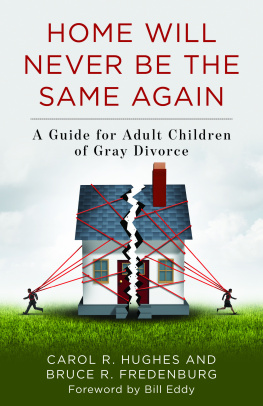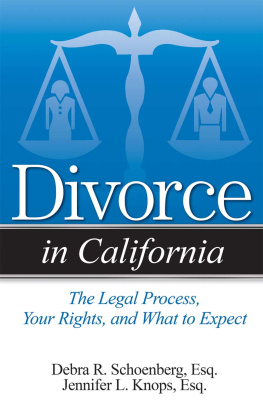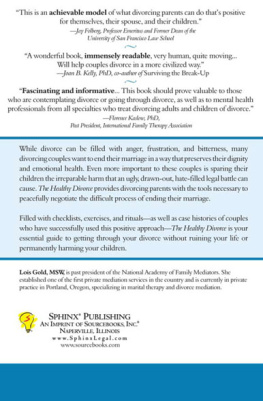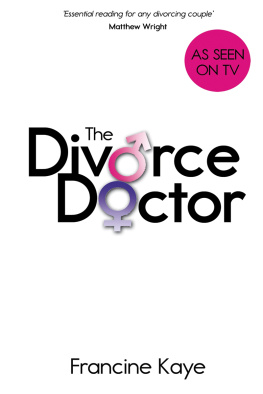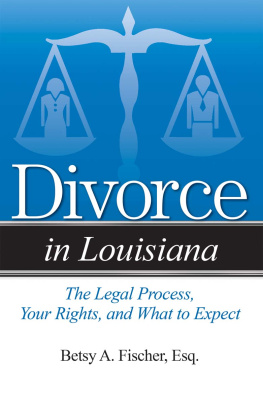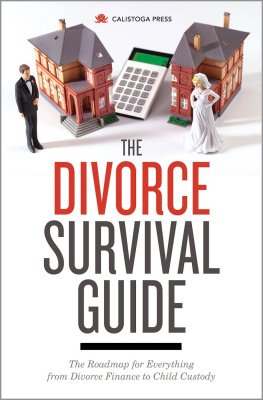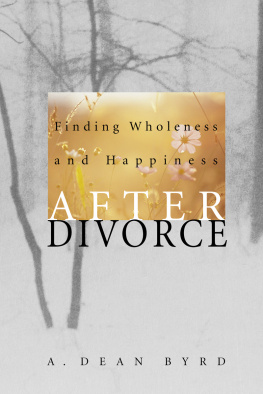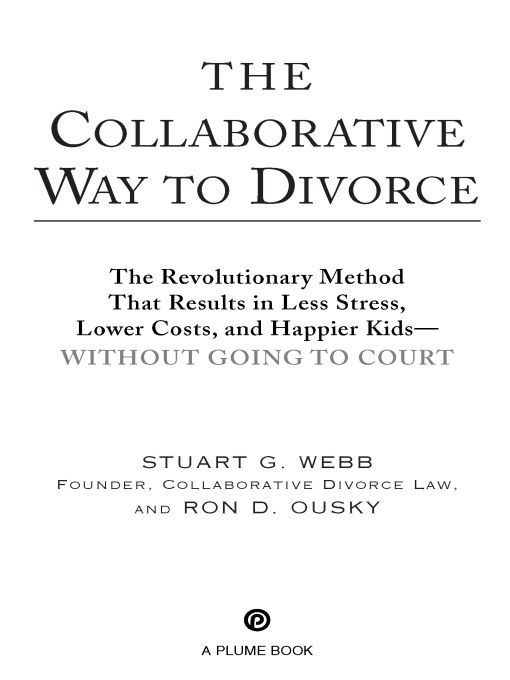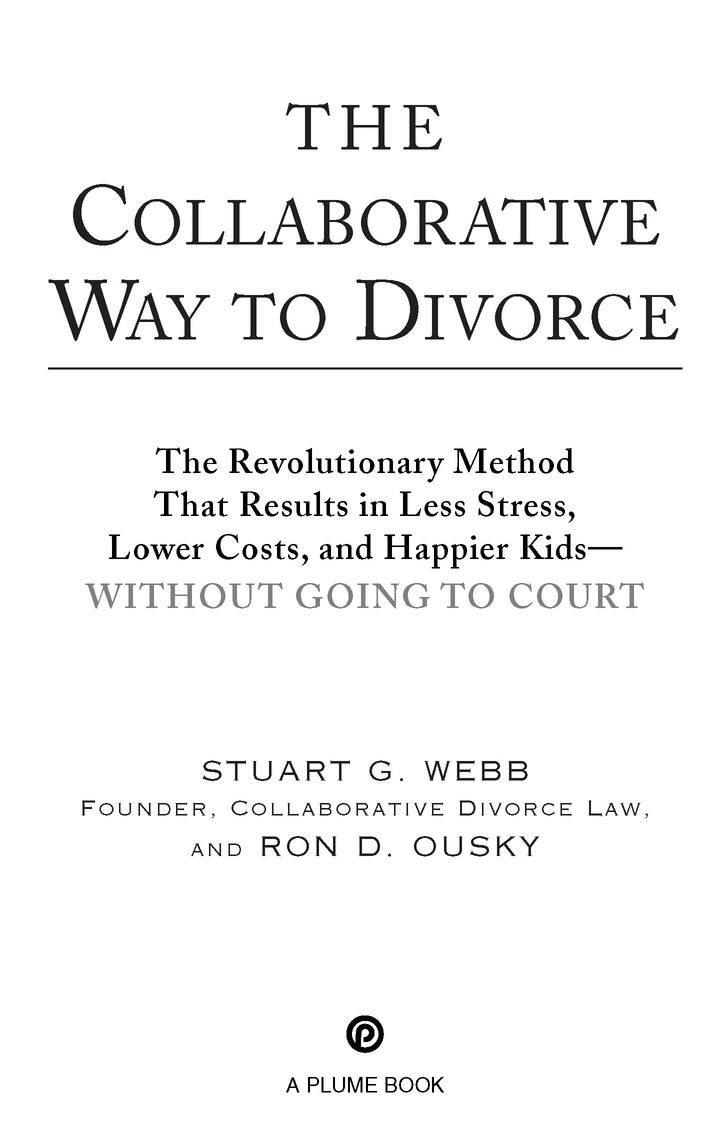Table of Contents
A PLUME BOOK
THE COLLABORATIVE WAY TO DIVORCE
STUART G. WEBB invented Collaborative law in 1990 and has practiced exclusively in the Collaborative method ever since. He trains and lectures throughout North America and Europe. He has appeared on CBS Evening News and in the New York Times and Wall Street Journal. In 2002 Mr. Webb was the corecipient of the American Bar Associations First Annual Lawyer as Problem Solver Award. Stu lives in Minneapolis, Minnesota, with his wife, Martha.
RON D. OUSKY is a Collaborative attorney and a worldwide leader in the Collaborative movement. He was one of the pioneers of the Collaborative method and is on the board of the International Academy of Collaborative Professionals (IACP). Ron is a frequent speaker and writer on Collaborative practice and has appeared on network television. He lives in Edina, Minnesota, with his wife, Marlys, and their three children, Maria, Dano, and Katie.
Writing this book has been a labor of love. If youd like to share your experiences with using this book, or with the Collaborative practice, e-mail the authors at stuwbb@aol.com and ron@ousky.com.
To our wives, Martha and Marlys
ACKNOWLEDGMENTS
We would like to thank all of the people who have contributed to this book through their ideas and encouragement.
We particularly want to acknowledge all of our clients who have had the courage and wisdom to see that divorce is not just a crisis, but an opportunity to look within themselves to meet the important challenges that lie ahead of them. Wed also like to thank the Collaborative practitioners around the world for making lives better for clients and familiesand themselves. We are especially grateful for our colleagues at the Collaborative Law Institute of Minnesota, who have helped us so much in our community, and the leaders and members of the IACP who have done so much to make the Collaborative option available to families around the world. There are so many wonderful pioneers in this movement that we find ourselves learning something new every time we get together.
We also wish to thank our agent, Jim Levine, who has helped us stay focused during this great adventure, as well as Armin Brott, who helped us make this book more clear.
And finally, we want to thank Laureen Rowland, founder and publisher of Hudson Street Press, for having the vision to see how a book about Collaborative divorce will make a difference in the lives of many families. In addition to being the person who truly made this book happen, Laureen has provided invaluable guidance that greatly improved the tone and content of the book.
On a more personal level, each of us would like to thank the following people.
Stu
I want to thank my wife, Martha, who provides a stable presence in support of peace and collaboration.
My grown childrenKim, Lisa, and Craigare an inspiration, as are my five grandchildrenLibby, Tori, Trevor, Nicholas, and Tyler.
My sister, Sally, has always been a supporting presence.
And my ancestors would never forgive me if I didnt sincerely honor my small-town upbringing in Rolfe, Iowa.
Ron
I want to thank the following people:
My wife and my best friend, Marlys, who has stood by me through these twenty-six years and supported my dreams.
My three wonderful childrenMaria, Dano, and Katiewho bring endless joy into my life and who help me appreciate the great miracle of parenthood.
My mother, who encouraged me to build castles in the air.
My father, who taught me much about true humility.
My siblingsRich, Terry, Diane, and Renefor being with me through every step of my journey.
The many friends who have supported my work, particularly Mick Cochrane and Stephen Cohen, two great friends and writers who helped me find my voice.
My colleague, Amy Jensen Wolff, for making the Collaborative Alliance dream come true.
The people of Milroy, Minnesota, for giving me a special place to grow up.
INTRODUCTION
Every thirty-two seconds, a child in America witnesses his or her parents divorce. And while divorce, even under the best circumstances, is marked by a range of emotions (disappointment, anger, hurt, betrayal, sadness, fear, and loss, to name just a few), research now reveals that how a couple conducts themselves during a divorce has far greater impact on their children than the act of divorcing itself.
Offering a dignified, effective, and highly strategic solution to one of lifes most difficult and emotionally charged situations, this book presents a completely new waya smarter wayto get divorced. Its called the Collaborative method of divorce, and simply put, it means that you, your spouse, and both of your lawyers agree to focus your efforts on civilly dissolving your marriage and dividing your assets, with no intention of ever going to court. While Collaborative divorce is similar to mediation in that both parties focus on finding common interests, rather than finding reasons to attack each other and defend their respective positions, Collaborative divorce goes well beyond mediation. Rather than employing a neutral party (mediator) who cannot offer advice or opinions, the Collaborative process allows each person in the couple to hire active legal representation. Stressing cooperation over confrontation and resolution over revenge, the smart divorce is both highly strategic and beneficial in that: It gives the couple greater control over the outcome of their divorce; resolution is generally less expensive and quicker than going to court; it benefits the children by keeping them out of the controversy; and it helps the couple to maintain a sense of integrity and respect, which is often a priority when children are involved.
While this may sound simple enough, in reality its a radical and revolutionary agreement for divorcing couples and their attorneys to make.
The majority of couples who go through the Collaborative method come through the process satisfied with the results. And more importantly, they are able to avoid the lingering hostility and anger that are so common among divorced couples and they stand a good chance of preserving whats still positive in their relationship and their relationships with their children. Its no wonder we call it the smart divorce!
So how and why did this process develop, and why has it caught on so dramatically throughout the United States, Canada, and an increasing number of other countries worldwide? Well get to that in a minute. But first, let us tell you a little about us.
The Collaborative Way to Divorce is written by two attorneys who work exclusively with this Collaborative modelStuart Webb, who originated the Collaborative method of divorce, and Ron Ousky, a pioneer of the process.
Stus Story
In 1989, I had been a divorce lawyer for about eighteen yearsand was getting pretty sick of it. I saw what the adversarial court battles that were the focus of divorce were doing to my clients, and I knew the resulting negativity was having an effect on me, too.
In traditional litigation two lawyers (or teams of lawyers) hash out the divorce in a court of law. The actual parties to the divorcethe husband and wifehave almost no direct contact with each other, and what little interaction they have is usually bitter and unproductive. Tension, fear, anger, and recrimination prevail. This traditional process makes it almost impossible for the parties to have anything remotely resembling a healthy relationship after the divorce, even when there are children involved.


